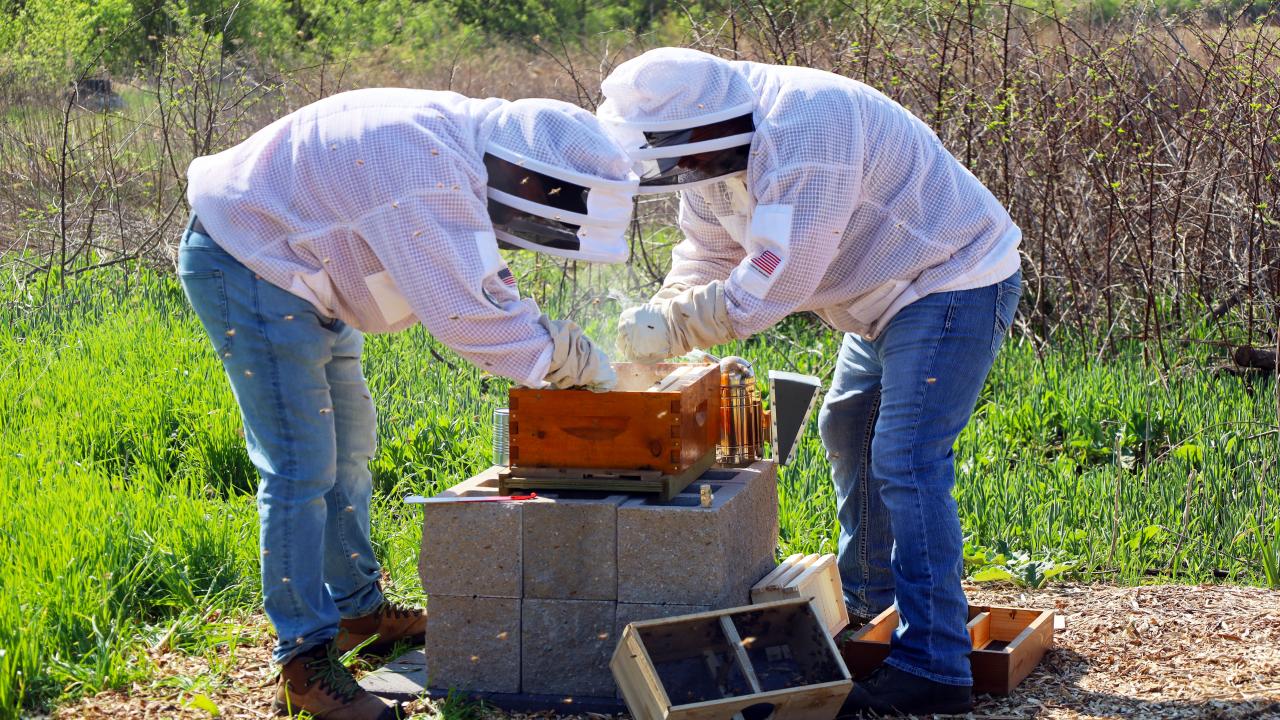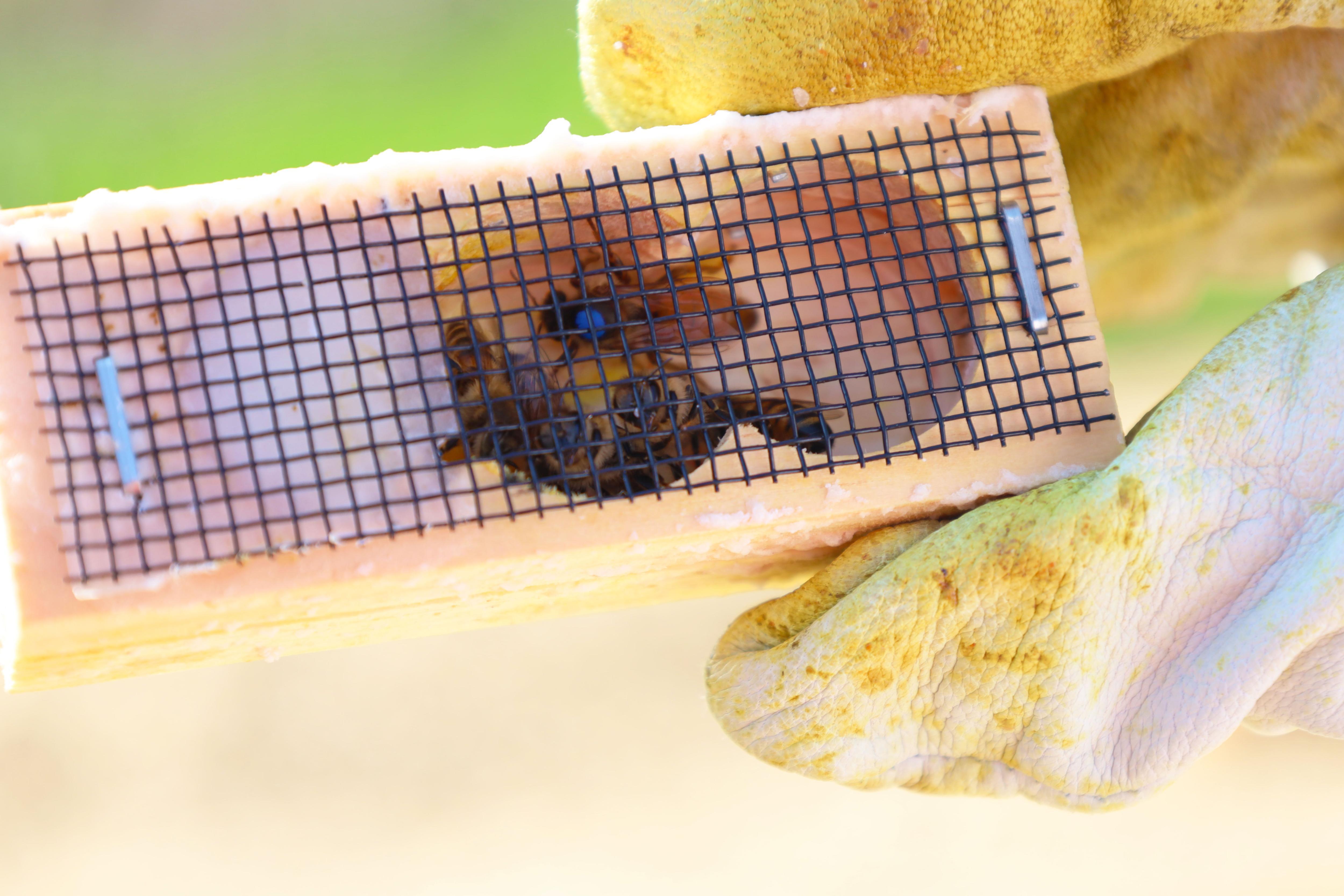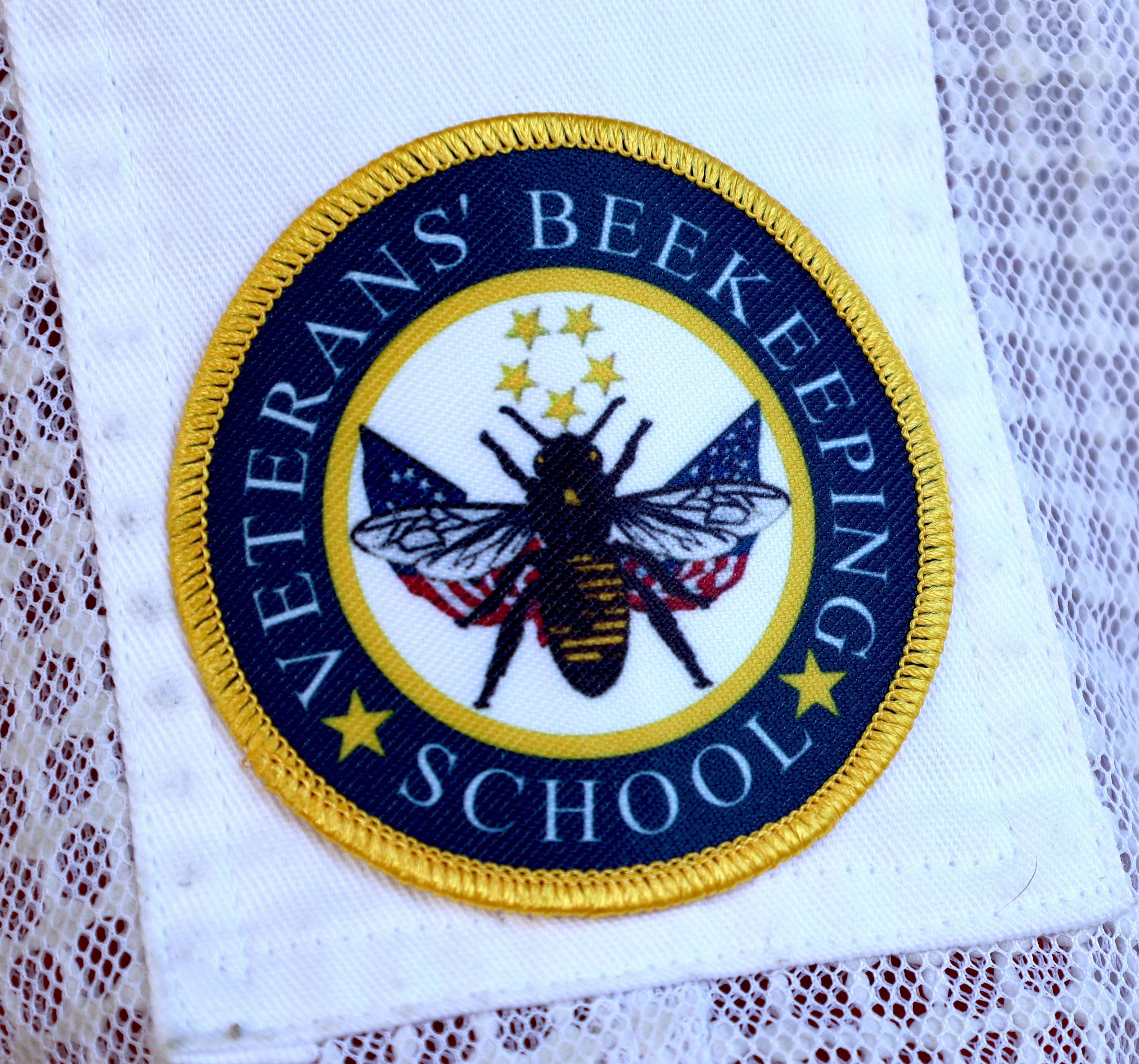Two Ohio State Marion Marine Corps veterans are making their mark on sustainability efforts and the campus community by introducing beehives to the Larry R. Yoder Prairie Learning Laboratory, an eleven-acre Sandusky Plains tall grass restoration project that began on the campus in 1977.
After attending the Central Ohio Beekeepers Association (COBA) Veteran Beekeeping School together, Todd Lee, a junior social work major from Delaware, Ohio and Eric Bailey, an engineering technology major from Columbus, Ohio, the two brought their joint vision together by delivering two hives to the campus prairie at the end of spring semester.
According to Bailey, the idea of bringing beehives to the campus prairie began with organizing an outreach event with COBA at Ohio State Marion.
“We had Bob and Claudia Bowers from the Central Ohio Beekeepers charitable foundation come to campus. We were just doing some outreach to try to get veterans to sign up for Veteran Beekeeping School of this year,” said Bailey.
“Todd had brought up the idea of, why don't we have bees at the prairie? The idea kind of took off from there. We started working with Bob and Claudia, they thought it was a great idea. We brought them out here and looked at it, and we went from there,” he added.
"I believe the bees serve multiple purposes," Lee said. "As Eric explained, when I came up with the idea, my first thought was that it's a fantastic concept because it encompasses so many different aspects. It benefits the ecological health of the prairie and contributes significantly to the overall goal of conserving it."
“Eric and I both being Marine Corps veterans realized in the beekeeping school how much the bees really help veterans on various levels,” Lee said.
“Each person faces unique struggles and challenges, and bees can impact these differently. For me, I can say that confronting and overcoming my fears gives me a sense of confidence. Once you realize that you can tackle something again, you begin to rebuild your confidence and boost your self-esteem. As a result, you also start to learn more about bees. There’s a real humanistic experience to this, and it makes the journey enjoyable,” he said.
Lee feels the bee apiary will impact students and the campus in a host of positive ways and hopes this helps build the project to the point where it is ingrained as part of campus culture.
“It will only have a synergistic effect until it's completely finished, which we hope will never happen. Eric and I both work hard to communicate and promote the project in order to engage our campus community, including faculty, students, and other veterans. Therefore, we hope to see this become a long-term initiative," said Lee.
“We wanted to bring back the knowledge we had gained from the school that did so much for us and share it with others. It's important for all of us to have a sense of service, and this project kind of gives us that,” Lee concluded.
Bailey shared that each of the new hives has its own queen marked in blue for this year. Each year that a queen is produced, it's marked and identified in a different color. The honeybee hives were commercially produced from Georgia and are now in place with the goal of growing the colony.


